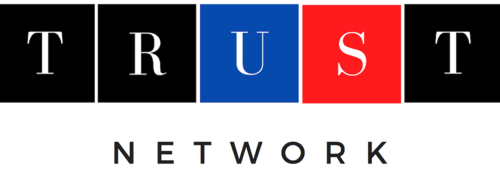Our Work
As a national transpartisan civic architecture and infrastructure that braids social justice, democracy, and legal and peacebuilding communities, our work helps to build cohesion and security. The TRUST Network has a national early warning and early response community of practice established in September 2020 which has grown from 12 communities across the country to 31 current communities representing the geographic and political diversity of the US. It has a reporting and analysis platform that monitors social media and reports from communities about incidents.
A network of networks, organizations, and individuals across the country.
A Community-Based Early Warning and Early Response Mechanism to Prevent and Address Hate in the USA
TRUST is more than a network of individuals and organizations. We are a network of networks. Wider and better-supported community participation is an essential mechanism to address hate and hate crimes: participation in data collection, intervention, and de-escalation, as well as in dialogue and partnership that promotes belonging and healing that mitigate against hate. This means strengthening the community's ability to participate in early warning and early action systems and using those partnerships to create programs to enhance social cohesion.
In 2023, the TRUST Network launched a new program with two key actions to assist communities: to upgrade its data collection and reporting system and to expand its early warning and early response community of practice to include communities in the “corridors of hate,” building both national and community capacity to understand, address, and prevent hate incidents.
Partnerships to Pilot the EWEA Dashboard
Atlanta, GA
Cleveland, OH
Fairfield/Harrisonburg, VA
Los Angeles County, CA
Minneapolis/St. Paul, MN
Olympia, WA
Philadelphia, PA
Providence/State-wide, RI
Savannah, GA
Selinsgrove, PA
Early warning systems enable federal, state, city, and, importantly, community actors to respond to hate crimes at different stages. Religious congregations, youth programs, community mediation centers, and other trusted local groups are best poised to detect early signs of hate and radicalization. They can enable their members to identify hate incidents before they become crimes, reporting situations for upstream warning and prevention. Further, city and state agencies and local communities can engage in midstream and downstream prevention efforts to interrupt the crimes as well as to strengthen resiliency at the individual and community levels.
Objectives:
Upgrade the TRUST Network’ s existing data ecosystem and collection dashboard.
Link leaders in key communities to the existing nationwide TRUST Network early warning/ early response platform, thereby expanding partnerships and coordination for improved responses to hate crimes.
Support communities as they develop comprehensive approaches to prevent and
respond to hate crimes and political violence.
Develop and/or disseminate (as appropriate for the context) adaptable, trauma-
informed tools, resources, and materials for preventing and responding to hate
crimes.
Strategies:
Listening sessions to understand: 1) possibilities for partnerships and coordination among community-based organizations, justice agencies, educational institutions, houses of worship, and other stakeholder organizations; 2) trends in hate crimes and factors that promote hate and hate crimes/incidents; 3) gaps in response possibilities as well as existing programs that can be built on.
Public Awareness Campaigns to build an understanding of the dynamics of hate, its targets, and its perpetrators, as well as community norms around reporting and responding to hate. Various communication channels are used, including media, social media, public relations, marketing, and advertising, to create awareness about the harms of hate groups and the benefits of inclusive communities. They involve community leaders, educators, law enforcement agencies, and civil society organizations.
Community dialogues build the sense of belonging necessary to break down hate as well as to heal from hate incidents. These sessions incorporate principles of trauma- informed care and could include Restorative Practices and Healing Circles.
Hate crime response training for individuals or community groups such as Active Bystander/De-escalation; Peace Officers Training, Online prevention of Offline Violence; deradicalization, and Trauma Training.
Creation of community Early Warning and Early Response teams that implement, monitor, and tailor comprehensive strategies for educating the community, reporting, and responding to instances of hate-filled action.
An effective community-level Early Warning Early Action ecosystem and data collection dashboard that serves the data collection and reporting needs of the community, is linked to the national EWEA system and shows community engagement through a vibrant feedback loop between local and national data collection and analysis.
Communities themselves will determine their strategies to prevent and respond to hate
and bias-based violence, and our convening organizations, NAFCM and MBBI,
point to these effective strategies.
Conflict Early Warning Analytics & Policy Project:
Guided by the leadership of internationally-recognized scholar on conflict, Madhawa Palihapitiya, the University of Massachusetts: Boston The Conflict Early Warning Analytics Program (CEWAP) at the Center for Peace, Democracy, and Development at the McCormack Graduate School for Policy and Global Studies, UMass Boston is the conflict early warning analytical hub of the TRUST Network.
Though CEWAP was formalized more recently, conflict early warning by CEWAP experts goes back twenty years and spans at least three continents. The TRUST Network, in partnership with CEWAP, produces Early Warning Bulletins, and reports, and convenes the Data Analyst Working Group.





